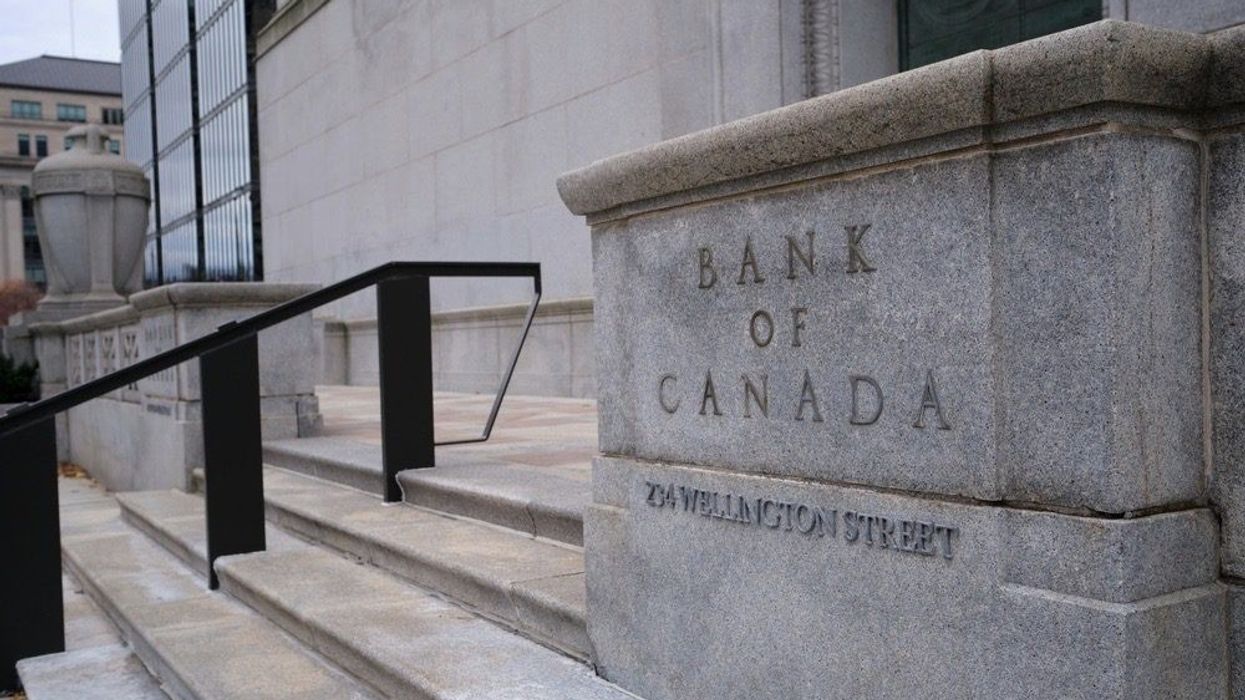Another week, another looming interest rate hike.
It will come as little surprise on Wednesday when the Bank of Canada hikes its key interest rate yet again. Economists predict an increase of either 50 or 75 basis points.
To countless Canadians, this inevitably comes as defeating news: in a climate of persistently high inflation, they’re already struggling. A new poll released today by insolvency firm MNP Ltd. found that a record number of Canadians are worried about the impact of rising interest rates on their financial well-being. Sadly, the 59%, or six in 10, Canadians who expressed concerns are the highest since the survey began tracking data in 2017.
Not that anyone needs the reminder, but Canada’s central bank has already raised interest rates three percentage points this year.
“After the repeated interest rate hikes this year, it is understandable that Canadians are more concerned than ever about what the impact will be on their finances,” says Grant Bazian, president of MNP LTD in a press release. “Our findings show that renters and lower-income households are more financially vulnerable to the impacts of rising interest rates and the cost of living. These groups will need to be particularly cautious with their spending in the coming months to keep themselves out of financial trouble.”

Compared to 29% of homeowners, 34% of renters say they’re concerned about the impact of rising interest rates on their financial situation. Furthermore, as interest rates rise, renters are significantly more likely to be concerned with their ability to repay their debts (63% of renters vs. 48% of owners), to be afraid they will be in financial trouble (59% of renters vs. 41% of owners), and to say that rising rates could move them towards bankruptcy (45% of renters vs. 27% of owners).
It doesn’t help that rents are now surpassing their pre-pandemic levels in some parts of the country.
Canadians with a household income of less than $40,000 are the most likely to feel the effects of interest rate increases (62%); to be concerned with their ability to repay their debts (60%); to say that rising rates would cause them to face financial trouble (59%); and to fear that rising interest rates are moving them closer towards bankruptcy (44%).
Bazian says those who are financially vulnerable and struggling to make ends meet will likely not be able to cut back their budgets any further if interest rates continue to rise and make their debts more unaffordable. “For households that have already slashed their budgets and shaved off as many expenses as they can, any future interest rate hikes could put them in a position where they are forced to take on additional debt to keep up with their bills," he says. "But the cost of servicing that debt is also ballooning as rates rise, making it far more difficult to pay off."
Bazian recommends assessing monthly credit card expenses that often go unnoticed but can add up. “Monthly subscriptions can be sneaky, including TV streaming subscriptions, app subscriptions, music subscriptions and cloud services, for example,” says Bazian. “Start cutting back by cancelling subscriptions you no longer use or use rarely, and checking to see if you have any overlapping services you can cut. Keep an eye on trial offers, and set reminders to cancel before you’re charged or the pricing goes up. Always look over your bills each month with a critical eye to keep those recurring monthly expenditures in check and cut down on costs where you can.”
As Canadians budget their bank accounts, one-quarter (25%, +4pts) say they are better equipped to absorb an interest rate increase of one percentage point than they used to be, while fewer (17%, -7pts) say their ability to deal with this increase has worsened. When asked about their ability to absorb an interest rate increase of an extra $130, one-fifth (21%, +2pts) say their ability to absorb this increase is much better, while a quarter (27%, -6pts) say it is much worse.
“Slightly more Canadians than last quarter believe they are better prepared for an interest rate increase, but these individuals are still in the minority. Canadians can be taking steps to improve their financial standing, in preparation for current and future interest rate hikes,” says Bazian. “That may include seeking out professional debt advice, making monthly budgeting a priority and taking the time to understand exactly how interest fluctuations will affect their monthly expenses and debt repayments.”
The proportion of Canadians who say that as interest rates rise, they are more concerned about their ability to pay their debts has remained relatively stable since last quarter, at 55%t (-1pt). Also remaining stable since last quarter, half (50%, unchanged) say that if interest rates go up much more, they will be in financial trouble. One-third (36%, -3pts) say that rising rates could drive them closer to bankruptcy, showing only a modest improvement since last quarter.
So, at least there's that (silver linings, right?).





















